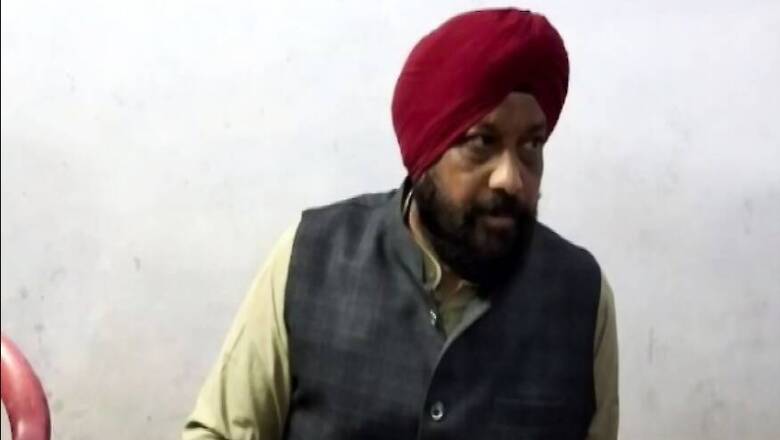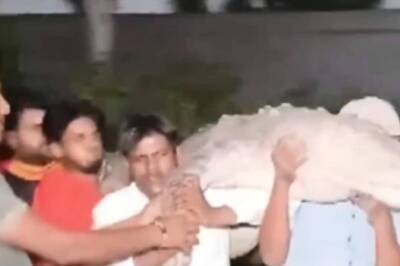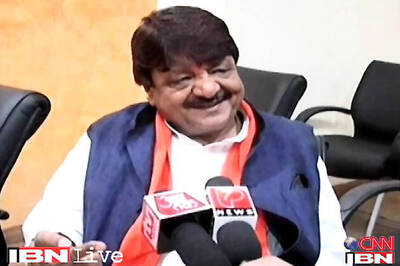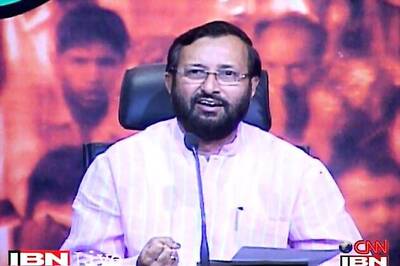
views
New Delhi: The resignation letter of Hardeep Singh Dang, one of the four Congress MLAs in Madhya Pradesh who went 'missing', has become a subject of intense discussion and debate on various social media sites. In this letter, addressed to the speaker of the MP assembly, Dang has levelled allegations of corruption against the Congress government and claimed that no minister wants to work.
The Suwasara MLA has alleged that the present government has repeatedly humiliated him. “I was the only Congress MLA elected from our parliamentary constituency in 2013, despite that I was given no ministerial berth. Neither were development works approved in my area, nor did I get respect. I was not even given a respectable place to stay in Bhopal,” Dang writes in his resignation letter.
He finally signs off saying that he’s resigning from the assembly but his struggle for farmers’ issues will continue. In a state where Congress is on a wafer-thin majority, the Speaker is likely to take time before announcing his decision on Dang’s resignation.
In July last year, 13 Congress-JD(S) MLAs had tendered their resignation from the Karnataka assembly in similar fashion. But the resignation of 8 out of the 13 MLAs was not accepted because the speaker found the format of those resignations faulty. Ramesh Kumar, the speaker, had reportedly said, “As members of the assembly don’t they know the format in which they should submit resignations...So things arise in my mind. One is, they are ignorant. I pity them. The second is, they have done it deliberately just to pretend."
So what exactly is the procedure of resigning from a state assembly, and on what grounds can a speaker reject or accept them?
There are two conditions for an MLA or an MP if they want to tender their resignation. First, the resignation has to be drafted in the official format. It has to be very brief. Secondly, the resignation shouldn't be tendered under pressure, constitutional experts say.
The resignation letter has to be a simple statement of intent expressed by the MLA that he/she is resigning from membership of that particular assembly with immediate effect. Any extra word, describing one’s reasons for resigning etc, will make the resignation letter unacceptable.
Secondly, if the resignation is written by hand and handed over to the speaker personally by the MLA, the speaker can make enquiries on whether the member is resigning under duress. After fully satisfying himself/herself the speaker can accept the resignation.
However if the letter is typed and sent by a medium, the speaker will be in his/her right to call on the person to make enquiries about the reasons for resignation.
On what basis could a speaker reject a resignation?
If the speaker has any reasons to believe that a particular member resigned in stress or under any external pressure, he may not accept the resignations. The speaker could also reject the resignation if he gets any information from his sources, in police etc, that the member is not putting down his or her papers voluntarily.
Resigning from an assembly means that the particular MLA’s constituency will be unrepresented for some time. So the speaker has been given these powers by the Constitution farmers to satisfy himself/herself thoroughly before taking a decision on the subject.
Could an MLA challenge a speaker’s decision in court?
In principle, an MLA could challenge the decision to not accept his/her resignation by the speaker, in court. However, since the Constitution in Article 190, for assembly, and 101, for Parliament, gives absolute discretion to the speaker, it is unlikely that a court could intervene except check the procedure that a speaker has followed.
The speaker's opinion in this regard are understood to be absolutely final and binding. There is no precedent of a court overturning speaker’s decision on such matters.
Hardeep Dang along with Raghuraj Kansana, Bisahulal Singh and independent member Shera Bhaiya had two days ago been reported ‘missing’. There were rumours, although former chief minister Shivraj Singh Chouhan denied them, that they were put up at a five-star hotel in BJP-ruled Karnataka in an attempt to topple the government.
Madhya Pradesh chief minister Kamal Nath has said that he has received information about Hardeep Singh Dang's resignation but “I have not yet received any letter from him or discussed the matter in person. Until I meet him personally, making comments over it will not be appropriate," Kamal Nath said.
The Congress-led government has 120 MLAs -- four over the majority mark of 116 in the 230-member assembly. Of them, 114 are from the Congress, two from the BSP, one from the Samajwadi Party and four independents. The BJP has 107 MLAs and two seats are currently vacant. If the three other missing MLAs resign, it would bring down the number in the assembly to 224 and the majority mark to 113.




















Comments
0 comment